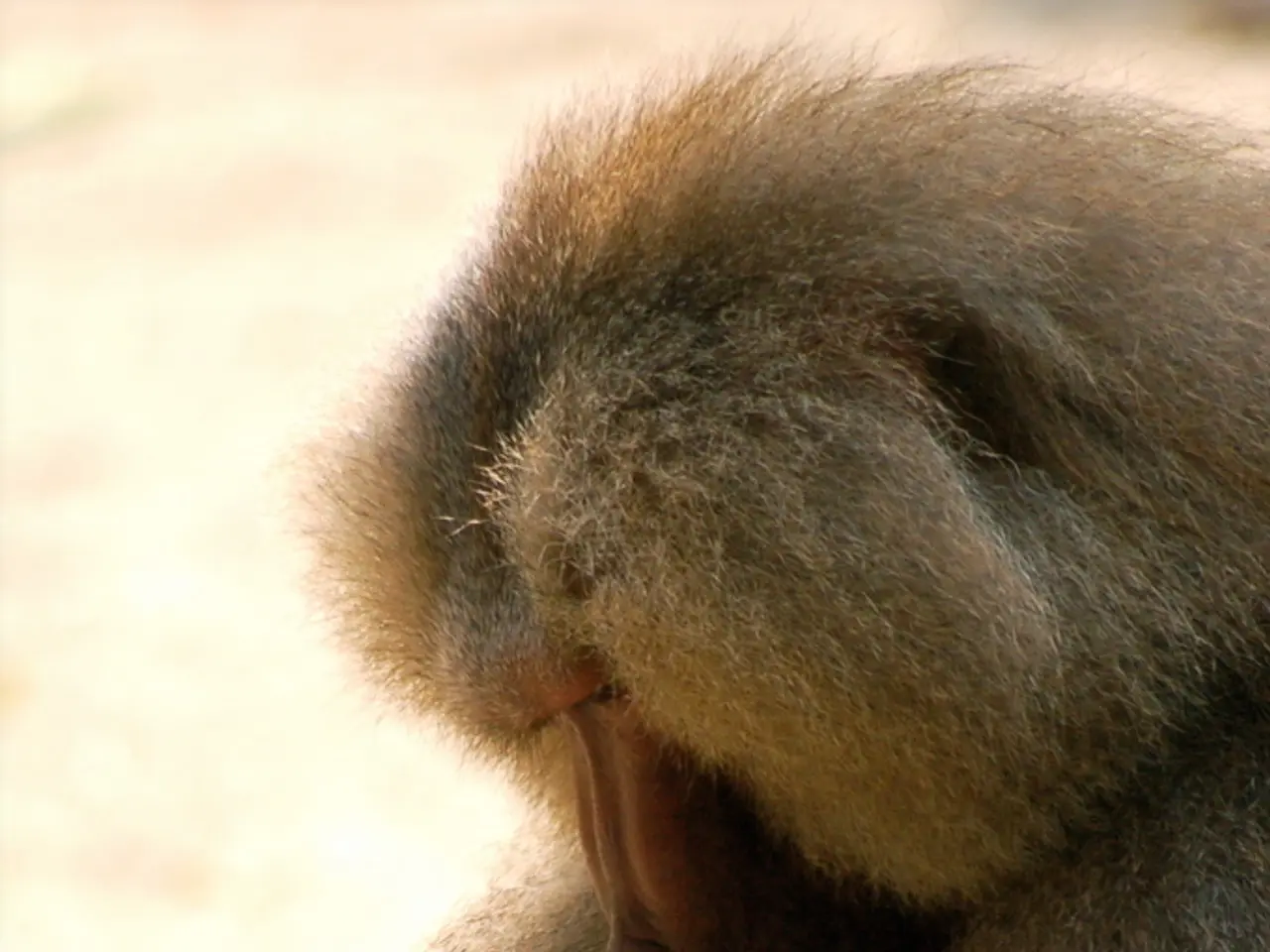Orangutans' Power Naps As a Response to Sleep Deprivation: Even Orangutans Need a Midday Snooze
- *
Afternoon Snoozes Are Not Exclusive to Humans, as Orangutans Get Their Rest Too - Primatesses occasionally engage in brief periods of sleep during the day.
Orangutans, like their human counterparts, take a midday nap when they don't get enough rest at night, according to a study by researchers at the Max Planck Institute for Behavioral Biology (MPI-AB) in Radolfzell, Germany. Alison Ashbury, the study's first author, explains, "When an orangutan doesn't get enough sleep, it does what any human with sleep deprivation would do: it climbs into bed, lies down, and takes a nap."
Orangutans' daily lives are filled with demanding tasks like moving through the treetops, hunting for food, solving problems, and engaging in social interactions. A typical Sumatran orangutan (Pongo abelii) sleeps for almost 13 hours a night, but this can be less depending on factors such as the presence of other orangutans, cold temperatures, or long distances traveled during the day.
Napping with a twist
An interesting observation finds a link between shorter sleep times and the presence of other orangutans, as explained by Ashbury: "It's like when you stay up late hanging out with friends, or your roommate snores so loudly that you wake up early. It's probably a bit like that for an orangutan, too. Maybe it prioritizes socializing over sleep or is disturbed by its fellow orangutan, or both."
To investigate the impact of sleep quality on daytime napping behavior, researchers recorded the duration of daytime naps based on the previous night's sleep quality. They discovered a clear compensation effect: for each hour less sleep at night, daytime naps were extended by 5 to 10 minutes. Orangutans napped on 41 percent of observed days for an average duration of 76 minutes, taking more naps when the duration was shorter.
Physiological and cognitive recovery
According to co-author Meg Crofoot, director at MPI-AB, "Even a short nap can have a significant restorative effect on humans. It's possible that these naps help orangutans recover physiologically and cognitively after a bad night's sleep, just like they do for humans." This study sheds light on the evolutionary origins and ultimate functions of sleep.
The research team observed adult orangutans at the Suaq Balimbing Monitoring Station on the Indonesian island of Sumatra. Their study was based on a long-term dataset on nest use by 53 animals over 276 nights and 455 days between 2007 and 2021. Surprisingly, the Suaq orangutans build day nests more frequently compared to other orangutan populations, using simpler, quicker construction methods.
Orangutans build an evening nest high up in a tree, taking approximately ten minutes to arrange, weave, and break branches, topped off with a mattress of leaves. "From our vantage point on the ground, we can't usually see orangutans in their nightly nests, but we can hear them settling in," said Caroline Schuppli, group leader at the MPI-AB. "Eventually, everything goes quiet and still. And in the morning, it's the opposite."
- Sleep Deprivation
- Orangutans
- Naptime
- Radolfzell am Bodensee
- Konstanz
- Max Planck Institute
- Sumatra
Additional Insights:
Researchers discovered that orangutans use daytime naps as a coping strategy to counteract the effects of impaired night sleep, underscoring the cognitive and physiological importance of adequate rest in orangutans' lives. By taking longer naps during the day, they recover from the demands of their environment and support their daily cognitive function. This behavioral adaptation is much like the way humans respond to sleep deprivation.
- Orangutans, like humans, implement a sleep-deprivation coping strategy by taking longer daytime naps when they haven't slept enough at night, a finding from a study conducted at the Max Planck Institute for Behavioral Biology (MPI-AB) in Radolfzell, Germany.
- Similar to the effects of sleep deprivation on humans, orangutans prioritize napping during the day to facilitate physiological and cognitive recovery from the rigorous demands of their environment and social interactions.








